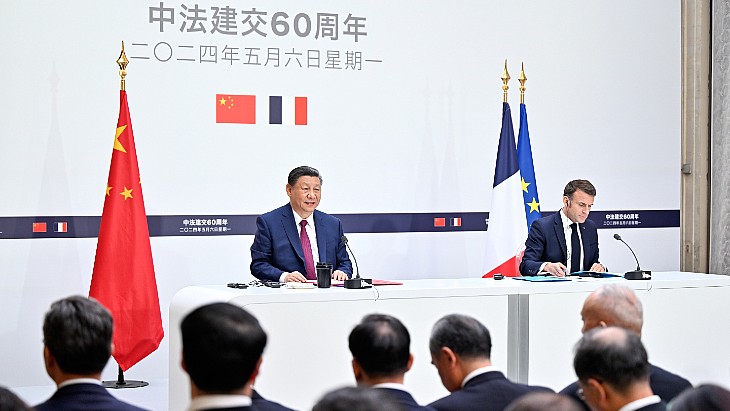Organizations call for positive EU leadership on nuclear
European electricity association Eurelectric has welcomed the European Commission's recently published Nuclear Illustrative Program (PINC), but expressed regrets at its failure to address the issue of premature reactor closures due to market conditions. European nuclear industry association Foratom also called on the PINC to address the impact of market conditions on nuclear investments.
Eurelectric described the PINC document, published on 4 April, as a "good basis" for discussions on the role of nuclear energy in achieving European Union (EU) energy objectives and praised it for recognising the significant investment required in the sector.
"A continuing contribution of nuclear power will be needed as Europe undertakes the low-carbon energy transition, but a more positive EU policy framework is needed if this is to be achieved," the organization's secretary general, Hans ten Berge, said yesterday. "We however regret that the PINC document does not address the competitiveness of existing and technically well-functioning nuclear reactors, which, in some countries, are being forced to shut down due to the difficult market situation and distortive national policy measures," he added.
The EC is mandated by the Euratom Treaty to issue periodically a new PINC report to indicate targets for nuclear production and the investments that will be needed to attain them. The latest report found that investment of between €350 billion ($399 billion) and €450 billion will be required over the next 35 years to maintain EU nuclear generating capacity at between 95 and 105 GWe. It is the first PINC to be published since the 2011 accident at the Fukushima Daiichi plant in Japan and includes investments related to post-Fukushima upgrades and the safe operation of existing nuclear facilities as well as new capacity.
In September 2015, Eurelectric submitted a position paper in which it said that nuclear contributed to the EU's three major energy policy objectives of security of supply, decarbonisation of the electricity sector and competitive power prices. However, it noted the economic challenges faced by existing nuclear power plants: "In several European countries distortive national policy measures place economic burdens on nuclear units which are leading to the early shutdown of technically well-functioning nuclear reactors," it said, calling for "specific tax burdens" that distorted the economics of the wholesale electricity market and also the long-term operation of nuclear power plants to be avoided.
Eurelectric's policy paper also called for an "improved regulatory framework" to help facilitate investment, and said Europe must find market-based solutions to reduce the investment risks associated with capital-intensive low-carbon energy projects including nuclear.
Missed opportunity
In its response to PINC, Foratom said that the EC's outlook that nuclear capacity in the EU would decrease to around 100 GWe by 2050 from 120 GWe today "does not seem consistent" with PINC's conclusion that nuclear energy is expected to remain an important component of the EU's energy mix. It pointed to the conclusion of the OECD Nuclear Energy Agency's Technology Roadmap 2015, that global nuclear capacity needs to more than double by 2050 if targets of limiting global temperature increases to 2 degrees Celsius are to be met. "Foratom regrets that the PINC contains no ambitious nuclear energy production targets," it said.
Foratom also called on PINC to address market failures which it said were hampering the investments needed for extensions to the operating periods of reactors as well as for the construction of new reactors across Europe. "Foratom is expecting the EC to take up a leadership position and propose concrete solutions to facilitate investments in nuclear alongside other low-carbon technologies," it said.
It also called for better coordination of national licensing authorities and standardization across the EU to reduce barriers to deployment of nuclear technologies and enable nuclear vendors and supply chain companies to compete more effectively in the international market.
Foratom director general, Jean-Pol Poncelet, described the PINC as a snapshot of nuclear energy in Europe. "What we now need is a vision and strong leadership in order to promote nuclear as part of the solution to climate change, in view of the recent agreement at the COP21 conference in Paris and the EC's important role in securing it. I believe the EC has missed an opportunity to underline nuclear energy as a reliable low-carbon technology and a major contributor to the goals of the Energy Union," he said.
Researched and written
by World Nuclear News









_66488.jpg)


